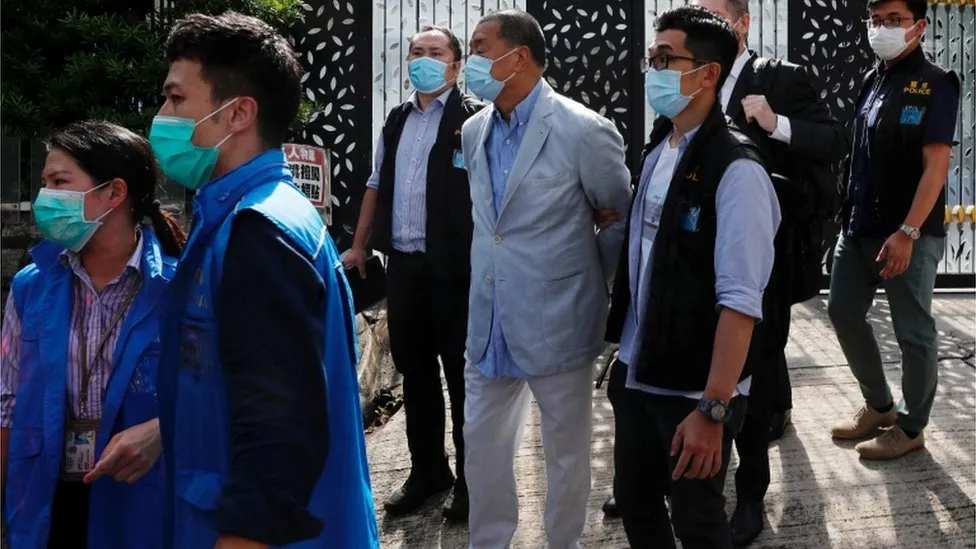Hong Kong media mogul Jimmy Lai, known for his pro-democracy stance, has declared his innocence as his trial resumed on Tuesday. The 76-year-old faces serious charges, including threats to national security and collusion with foreign forces, which could lead to life imprisonment. The case has garnered international attention and is considered a crucial test of Hong Kong’s judicial independence.
Lai’s trial began on December 18 after a one-year delay and is anticipated to last around 80 days. He has been in solitary confinement since December 2020, initially arrested for fraud and his participation in protests in Hong Kong. Lai, a UK citizen, has received support from figures like British Foreign Secretary David Cameron, who called for his release.
Lai is the highest-profile individual accused of violating the National Security Law (NSL), a Beijing-backed legislation criticized for suppressing dissent. Before his arrest in 2020, Lai described himself as a “born rebel” in a BBC interview.

Founder of the now-closed pro-democracy newspaper Apple Daily, Lai played a prominent role in Hong Kong’s pro-democracy movements, from the Umbrella Movement in 2014 to protests against a Beijing-supported extradition bill in 2019. Over 250 activists, lawmakers, and protesters, including Lai, have been detained under NSL and sedition charges.
The National Security Law, introduced in 2020 in response to large-scale pro-democracy protests, has been justified by Beijing as necessary to quell unrest. Lai is labeled a traitor seeking to undermine China’s security.
Born in Guangzhou, China, in 1947, Lai fled to Hong Kong at the age of 12 as a stowaway on a boat. Initially working in a garment sweatshop, he taught himself English and later founded the global apparel brand Giordano. Following the 1989 pro-democracy protests in Beijing, Lai shifted his career towards political activism and media.
In 2021, he received a 13-month jail sentence in Hong Kong for participating in a banned vigil commemorating the Tiananmen Square massacre.
Hong Kong’s National Security Law
In June 2020, China implemented the highly controversial National Security Law, raising concerns among critics who believe that it could mark the demise of Hong Kong’s limited autonomy. This law, often referred to as ‘The end of Hong Kong’ by skeptics, has sparked fears that China might exploit it to curtail the special freedoms enjoyed by Hong Kong.
Historically, Hong Kong was a British colony until it was handed back to China in 1997, accompanied by assurances of a ‘One country, two systems’ framework. Under this arrangement, Hong Kong was expected to maintain a certain level of autonomy, distinct from the mainland Chinese system. Since the handover, residents of Hong Kong have experienced a greater degree of freedom compared to those in mainland China.
However, the enactment of the National Security Law came in response to significant pro-democracy protests in Hong Kong. Many see this law as a threat to the region’s autonomy, potentially undermining the ‘One country, two systems’ principle that was promised during the handover in 1997. The introduction of the National Security Law has heightened concerns about the erosion of Hong Kong’s unique status and the potential impact on the rights and freedoms of its residents.

